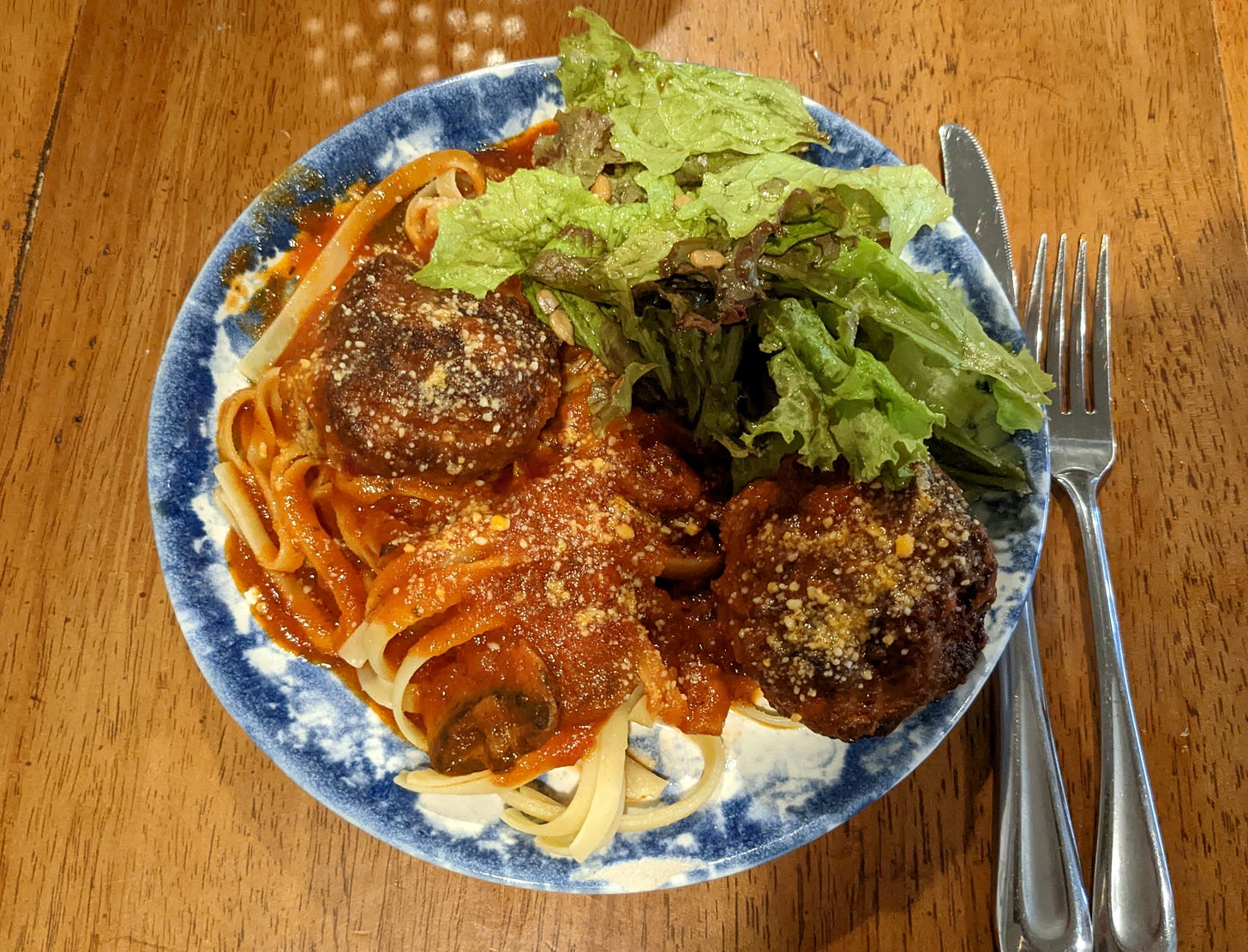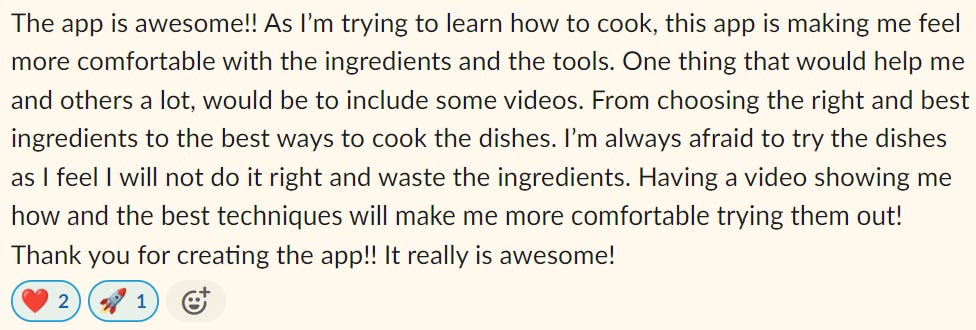Parsnip's next chapter 🌱
The pitch for Parsnip in a nutshell
Over the last 60 years, we’ve forgotten how to make our own food.
And yet, as we’ve come to this realization and the whole world tries to cook again1, a plethora of food-related technologies and products doesn’t seem to be helping — and demand for learning to cook keeps rising.
After looking at the obvious solutions and dodging various pitfalls in the idea maze, we’ve realized that many of these products are trying to solve this problem the wrong way. They try to give people convenience, but novice cooks are hungry for confidence. When Parsnip arms our users with confidence, magic ensues. People who’ve never cooked before, start cooking!


Our app is live, and you can try the magic of Parsnip yourself!
A pithy way to explain Parsnip is “Duolingo for cooking”, and the co-founders of Duolingo backed us because they believed we could make that happen. But if the rising demand on Google Trends doesn’t convince you, maybe you can believe our 5 viral Reddit threads, #1 post on Hacker News, #6 most popular Morning Brew content in Q3 2022, and #1 education product of the week on Product Hunt — not only is the demand clearly there, but we’ve figured out how to tap into it.
But, we have much bigger fish to fry. Teaching people to cook is just a stepping stone to building an AI companion for the home kitchen, solving a continual pain for any home cooks: the question of what’s for dinner. Solving this problem delightfully, one that every person in the world has every day, is the foundation of a novel and incredibly impactful business.
The kicker? If we succeed, we’ll accomplish so much more than just our goal of making it easy and gratifying to cook regularly. We’re also building a product that’s good for people and good for the planet. And we can’t wait to help millions of people go from being afraid to step into the kitchen, to feeling like this:
Our fun, personalized, tech tree based, AI-facilitated, integrated-into-your-life approach to learning2 has immense technical leverage, but doing this for cooking is just the first step. We think of Parsnip as an intelligence augmentation system that helps people both acquire knowledge faster (here, learning cooking skills) and make better decisions (here, personalized meal planning).
But this same model applies to many other things that people find hard to learn. Building this AI platform for cooking means we’ll gain unique insights for applying this toolkit to a bunch of other things (I’d love to show you how that works). Because at the end of the day, our ultimate goal is to be a consumer company that doesn’t use AI to replace people, but to help people become the best version of themselves.
By the way, we have an awesome team that loves food, loves working together, has built and exited companies, has no fear of the startup journey, and is in it for the long haul. Here’s a teaser deck if you prefer pictures, but the story above and the links therein are a much clearer pitch (and basically a pre-written deal memo).
How about a conversation where we can tell you more? If you’re interested in being along for the ride, please get in touch and let us know how you’d like to participate. Or if this vision sounds too farfetched, perhaps you can subscribe to this newsletter and give us the chance to prove you wrong?
The best way to get a sense of the magnitude of cooking demand is to make a comparison to something else. Try another query that you think is reasonably popular (anything, not just about learning or food) in the second box here and see where it falls compared to the first line.
This is basically Anne Lee Skates and Connie Chan’s next-gen edtech thesis, but applied to consumer cooking.





